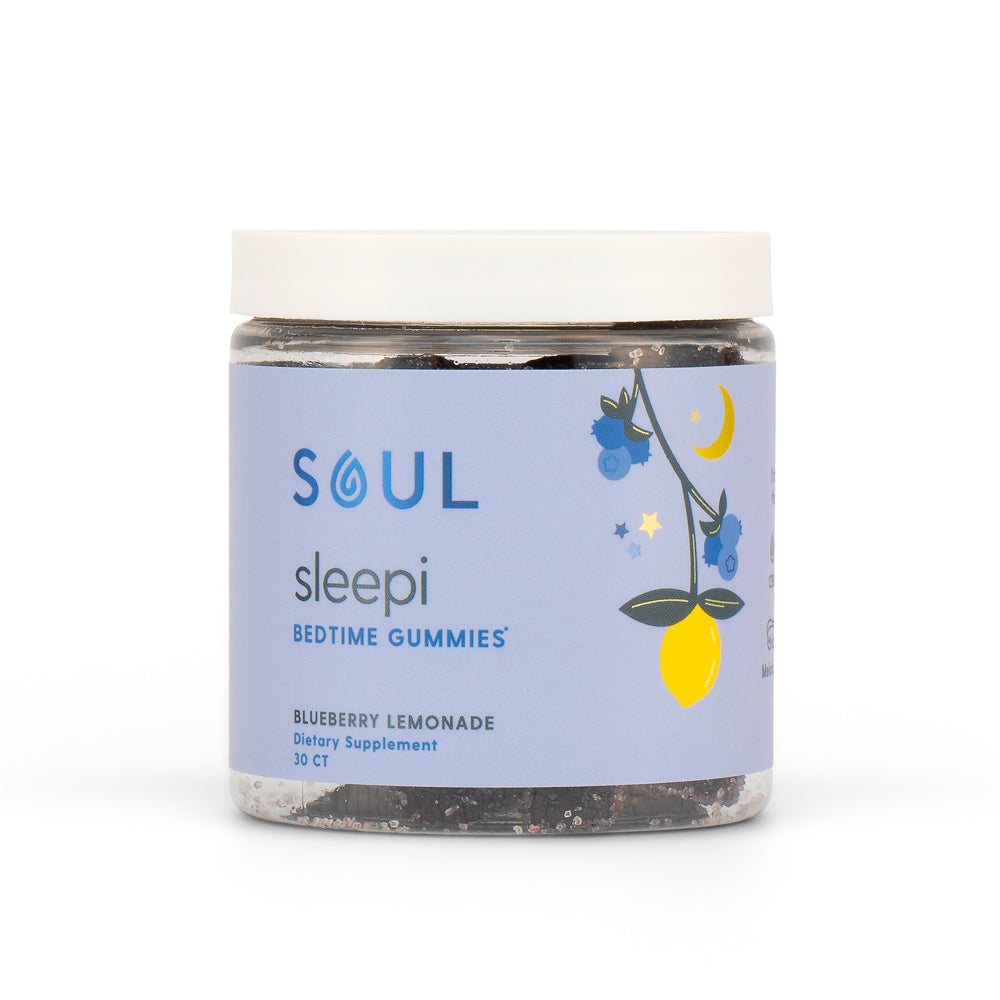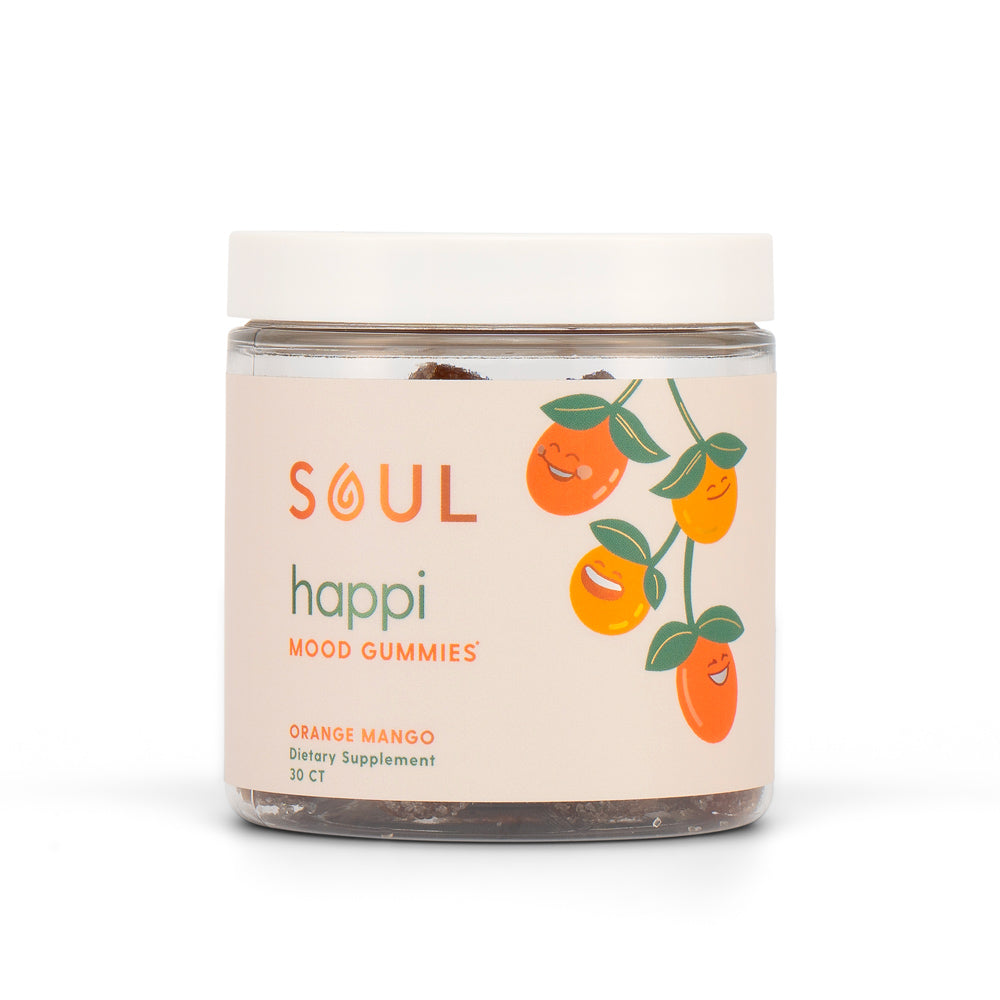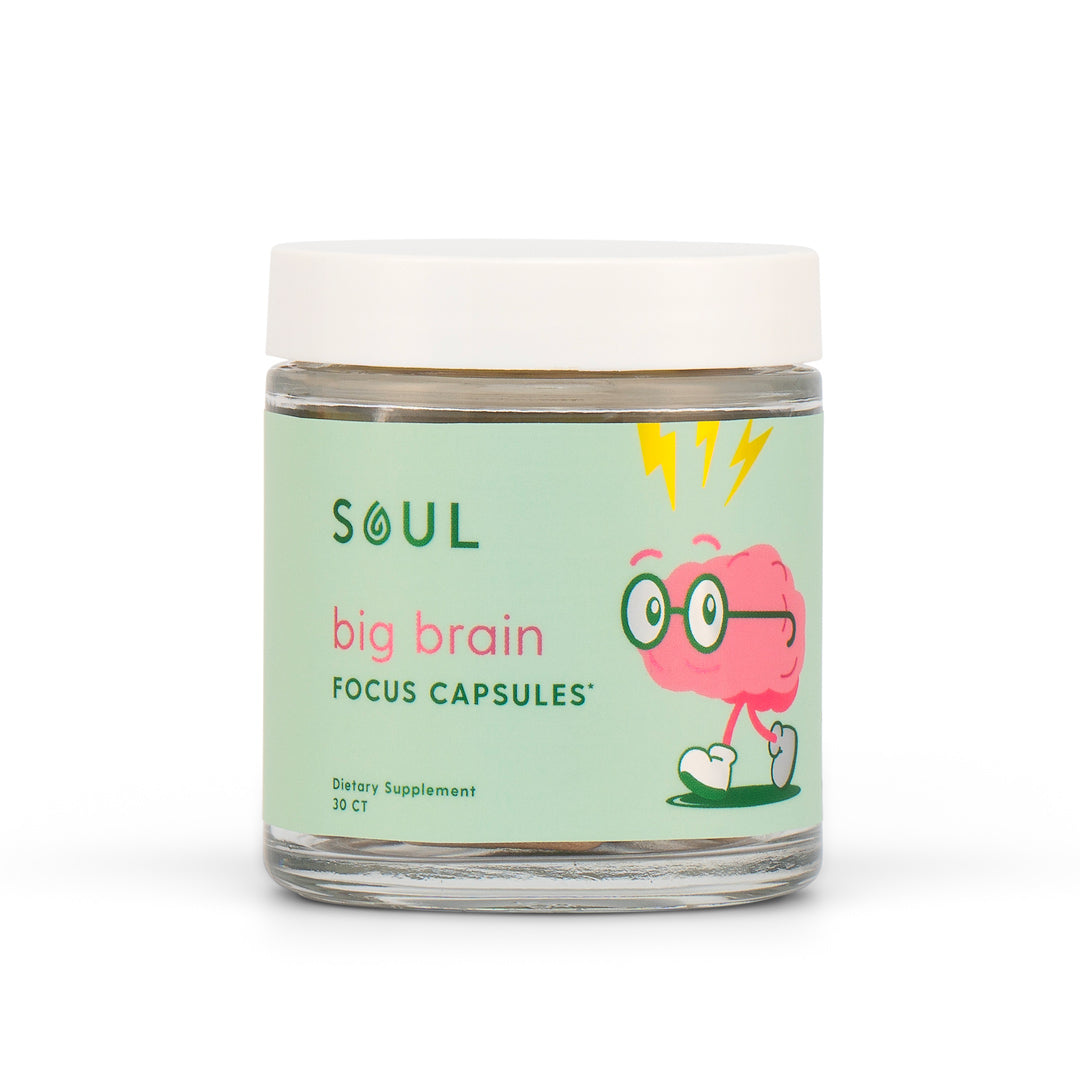Wellness Never Tasted So Good
Welcome to your feel-good headquarters.

-
ALCOHOL ALTERNATIVE
New Product
$37.00 – $198.00 -
EUPHORIC VIBES
New Product
$54.00 – $75.00 -
BETTER SLEEP
New Product
$70.00 -
EUPHORIC VIBES
New Product
$54.00 – $70.00 -
BETTER FOCUS
$70.00 -
BETTER SLEEP
Best Seller
$70.00 -
BALANCE AND WELLNESS
Low Stock
$62.00 – $153.00 -
BALANCE AND WELLNESS
Best Seller
$43.00 – $65.00 -
MOOD-BOOSTING
Tastes Delicious
$70.00 -
BETTER FOCUS
Doctor Formulated
$62.00 -
BETTER SLEEP
Tastes Delicious
$72.00 -
PMS WINGWOMAN
Low Stock
$70.00 -
STRESS RELIEF
Doctor Formulated
$62.00 -
REDUCE BLOAT
Doctor Formulated
$52.00 -
BETTER SLEEP
Doctor Formulated
$62.00 -
DAILY PAIN RELIEF
Doctor Formulated
$62.00 -
FAST-ACTING RELIEF
Best Seller
$75.00 -
MICROBIOME SUPPORT
Doctor Formulated
$62.00 -
MONTHLY EQUILIBRIUM
Doctor Formulated
$62.00 -
METABOLIC SUPPORT
Doctor Formulated
$62.00 -
YOUR DAILY UNWIND
Low Stock
$10.00 -
PET WELLNESS
$45.00 -
FOR YOUR ANXIOUS PET
$35.00 -
FOR YOUR HURTING PET
Best Seller
$35.00 -
TRY THEM ALL
Tastes Delicious
$155.00 -
FIND BALANCE
Doctor Formulated
$167.40 -
YOUR FAVORITES
Best Seller
$157.00 -
TASTES LIKE PTO
Tastes Delicious
$101.60 -
GET YOUR OUT OF OFFICE ON
Best Seller
$106.00
-
$37.00 – $198.00
-
$54.00 – $75.00
-
$70.00
-
$54.00 – $70.00
-
$62.00 – $153.00
-
$43.00 – $65.00
-
$62.00
-
$10.00
-
$157.00
-
$52.00
-
$62.00
-
$54.00 – $75.00
-
$70.00
-
$62.00
-
$54.00 – $75.00
-
$62.00 – $153.00
-
$52.00
-
$62.00
-
$75.00
-
$10.00
-
$37.00 – $198.00
-
$54.00 – $75.00
-
$70.00
-
$45.00
-
$35.00
-
$35.00
-
$70.00
-
$70.00
-
$37.00 – $198.00
-
$54.00 – $75.00
-
$70.00
-
$62.00 – $153.00
-
$72.00
-
$62.00
-
$10.00
-
$70.00
-
$62.00 – $153.00
-
$43.00 – $65.00
-
$62.00
-
$62.00
-
$62.00
-
$167.40
Need help finding your personalized routine?
Wellness Education
Our Emails Are Almost As Delicious as Our Products
Just don’t try to eat them.

.
What Are Wellness Supplements?
Wellness supplements are products designed to provide additional nutrients and support to your body, beyond what you may be getting from your regular diet. They come in various forms, such as pills, capsules, powders, and liquids, and are intended to complement your daily nutritional intake.
What Are The Different Types Of Wellness Supplements?
Wellness supplements can be categorized into several types, each serving different health purposes:
Vitamins And Minerals
These are essential nutrients required for various bodily functions. Common examples include Vitamin C, Vitamin D, calcium, and iron. They help boost the immune system, support bone health, and improve energy levels. Vitamins and minerals are critical in preventing deficiencies that can lead to various health issues, such as scurvy from lack of Vitamin C or osteoporosis from insufficient calcium and Vitamin D. Regular intake through diet and supplements ensures that the body functions optimally and maintains overall health.
Herbal Supplements
Derived from plants, these supplements are used for their medicinal properties. Popular herbal supplements include echinacea, ginseng, and turmeric. They are often used to support the immune system, reduce inflammation, and enhance mental clarity. Herbal supplements have been used for centuries in traditional medicine and are valued for their natural healing properties. Echinacea is commonly used to prevent colds, ginseng is known for its energy-boosting effects, and turmeric is celebrated for its powerful anti-inflammatory and antioxidant properties.
Amino Acids
These are the building blocks of proteins and play a critical role in muscle repair, hormone production, and overall body function. Common amino acid supplements include glutamine, leucine, and arginine. Amino acids are essential for protein synthesis, which is crucial for muscle growth and repair, especially for athletes and bodybuilders. They also support metabolic processes and improve recovery times after physical exertion. Additionally, amino acids like arginine can enhance blood flow and cardiovascular health.
Enzymes
Enzymes are proteins that aid in digestion and other metabolic processes. Digestive enzyme supplements, such as lactase and protease, help improve digestion and nutrient absorption. These supplements are particularly beneficial for individuals with digestive disorders or those who have difficulty breaking down certain foods. For example, lactase helps those with lactose intolerance digest dairy products without discomfort. Enzymes ensure that nutrients from food are effectively absorbed, enhancing overall digestive health and nutrient utilization.
Probiotics
These are beneficial bacteria that support gut health. Probiotics help maintain a healthy balance of gut flora, which can improve digestion, boost immunity, and enhance overall health. They are particularly effective in preventing and treating gastrointestinal issues like diarrhea and irritable bowel syndrome (IBS). Regular intake of probiotics can also support immune function, as a significant portion of the immune system is located in the gut. By maintaining a balanced microbiome, probiotics contribute to overall wellness and prevent harmful bacteria from proliferating.
What Are The Benefits Of Wellness Supplements?
Wellness supplements offer a variety of benefits that can enhance overall health and well-being:
Improved Nutrient Intake
Many people struggle to get all the necessary nutrients from their diet alone. Supplements can help fill these nutritional gaps, ensuring that your body gets the vitamins and minerals it needs to function properly. This is particularly important for individuals with dietary restrictions, food allergies, or specific health conditions that limit their nutrient intake. By providing essential nutrients, supplements support overall health and prevent deficiencies that can lead to chronic diseases and other health issues.
Enhanced Immune Function
Certain supplements, such as Vitamin C, Vitamin D, and zinc, are known for their immune-boosting properties. They can help strengthen your body's defenses against infections and illnesses. Regular intake of these supplements can reduce the duration and severity of common colds and flu. Additionally, they play a role in the production and function of immune cells, enhancing the body’s ability to fight off pathogens and maintain a robust immune system.
Better Digestive Health
Probiotics and digestive enzymes can improve gut health, aiding in better digestion and nutrient absorption. This can lead to reduced bloating, improved regularity, and overall digestive comfort. A healthy gut microbiome supported by probiotics can also enhance immune function and prevent gastrointestinal issues like diarrhea and irritable bowel syndrome (IBS). Digestive enzymes ensure that food is broken down efficiently, maximizing nutrient uptake and minimizing digestive discomfort.
Increased Energy Levels
Supplements like B vitamins, iron, and coenzyme Q10 can help boost energy levels and combat fatigue, helping you stay active and productive throughout the day. B vitamins are essential for energy metabolism, converting food into usable energy. Iron supports oxygen transport in the blood, preventing anemia-related fatigue. Coenzyme Q10, a powerful antioxidant, plays a critical role in cellular energy production, particularly in the heart and muscles.
Support For Mental Health
Omega-3 fatty acids, magnesium, and certain herbal supplements like St. John's Wort can support mental health by reducing symptoms of depression, anxiety, and stress. Omega-3s are crucial for brain health and have been shown to improve mood and cognitive function. Magnesium helps regulate neurotransmitters that influence mood, while St. John's Wort is often used as a natural remedy for mild to moderate depression. Together, these supplements can enhance emotional well-being and mental clarity.
Promotion Of Healthy Aging
Antioxidants such as Vitamin E, Vitamin C, and selenium can help combat oxidative stress, reducing the risk of chronic diseases and promoting healthy aging. These antioxidants neutralize free radicals, which can damage cells and contribute to aging and disease. By protecting cells from oxidative damage, antioxidants support skin health, boost the immune system, and reduce the risk of conditions like heart disease, cancer, and neurodegenerative disorders. Regular supplementation can contribute to a longer, healthier life.
What Are Some Potential Risks And Side Effects?
While wellness supplements can offer significant health benefits, it's important to be aware of potential risks and side effects:
Overconsumption And Toxicity
Taking too many supplements or consuming high doses can lead to toxicity. For example, excessive Vitamin A intake can cause liver damage, while too much iron can lead to gastrointestinal issues and other health problems. Fat-soluble vitamins like A, D, E, and K are particularly prone to accumulating to toxic levels in the body. It's crucial to adhere to recommended dosages and consult a healthcare professional to avoid potential harm from overconsumption.
Interactions With Medications
Some supplements can interact with prescription or over-the-counter medications, potentially reducing their effectiveness or causing harmful side effects. For instance, St. John’s Wort can reduce the efficacy of birth control pills and certain antidepressants. Similarly, supplements like garlic or ginkgo biloba can thin the blood and increase the risk of bleeding when taken with anticoagulant medications. Always inform your healthcare provider about any supplements you are taking to prevent adverse interactions.
Allergic Reactions
Certain supplements may contain ingredients that can trigger allergic reactions in some individuals. Symptoms can range from mild itching to severe anaphylaxis, depending on the individual and the allergen. Common allergens in supplements include shellfish (found in glucosamine), soy, dairy, and various herbal components. It's essential to read labels carefully and be aware of any potential allergens, especially if you have known allergies.
Digestive Issues
Some people may experience digestive problems such as nausea, diarrhea, or stomach cramps when taking certain supplements, especially if taken on an empty stomach. Iron supplements, for example, are notorious for causing gastrointestinal discomfort. To minimize digestive issues, it’s advisable to take supplements with food or follow specific instructions on the label. If symptoms persist, consider switching to a different form of the supplement or consult a healthcare professional.
Contamination And Quality Issues
Not all supplements are created equal. Some may contain contaminants like heavy metals, pesticides, or unlisted ingredients that can pose health risks. It’s crucial to choose high-quality supplements from reputable sources. Third-party testing and certifications from organizations like USP or NSF can provide assurance of a product's purity and quality. Avoiding cheap, unverified supplements can help protect you from potential contamination and health hazards.
Misleading Claims
Some supplements may not live up to their marketing claims, leading to disappointment and wasted money. Always research and consult healthcare professionals before starting any new supplement regimen. Regulatory oversight for supplements is less stringent than for pharmaceuticals, allowing some products to make unsubstantiated health claims. Relying on scientifically backed information and professional advice ensures you invest in supplements that genuinely support your health goals.
How Do You Choose The Right Wellness Supplements?
Selecting the right wellness supplements can be a daunting task given the plethora of options available. Here are some tips to help you make an informed choice:
Identify Your Needs
Determine what you want to achieve with supplements. Are you looking to boost your immune system, improve digestion, increase energy levels, or support mental health? Knowing your specific goals will help narrow down your options. For example, if you're experiencing fatigue, you might focus on supplements like B vitamins or iron, whereas if you're looking to enhance mental clarity, omega-3 fatty acids or ginkgo biloba might be more suitable. Clearly defining your health objectives can guide you towards the most effective supplements for your needs.
Consult A Healthcare Professional
Before starting any supplement regimen, it's crucial to consult with a healthcare provider. They can provide personalized recommendations based on your health status, existing conditions, and current medications. A healthcare professional can also help identify any potential interactions with medications you are currently taking and advise on the appropriate dosages. This personalized advice ensures that you take supplements that are safe and beneficial for your unique health profile.
Research And Read Reviews
Look for reputable sources of information and read reviews from other users. Websites, forums, and product reviews can provide valuable insights into the effectiveness and safety of supplements. Pay attention to both positive and negative feedback, and consider the experiences of individuals with similar health concerns. Additionally, professional reviews and scientific studies can offer more in-depth information on the efficacy and safety of specific supplements.
Check For Quality And Certifications
Choose supplements that are third-party tested and certified by reputable organizations. Certifications from groups like USP (United States Pharmacopeia), NSF International, or ConsumerLab ensure that the products meet high standards for quality and purity. Third-party testing can verify that the supplement contains the ingredients listed on the label, free from contaminants, and at the stated potency. This level of assurance is crucial for maintaining your health and avoiding potentially harmful products.
Understand The Ingredients
Read the labels carefully to understand what’s in the supplements. Avoid products with unnecessary fillers, artificial colors, or preservatives. Knowing the active ingredients and their dosages can help you avoid potential allergens or interactions with other medications. Familiarize yourself with common ingredients and their benefits, and be wary of proprietary blends that may not disclose specific ingredient amounts. Transparency in labeling helps you make more informed decisions.
Start With A Single Supplement
If you’re new to supplements, start with one at a time to monitor how your body responds. This makes it easier to identify any side effects or reactions. By introducing supplements gradually, you can more accurately assess their impact on your health. If any adverse effects occur, you can quickly pinpoint the cause and discontinue use, preventing further complications.
Monitor Your Progress
Keep track of any changes in your health and well-being. If you notice positive effects, you might be on the right track. If you experience any adverse reactions, discontinue use and consult your healthcare provider. Regularly evaluating your response to supplements ensures that they are meeting your health goals and allows for adjustments as needed. Keeping a health journal or using an app can help you track improvements and side effects effectively.
What Are Some Popular Wellness Supplements And Their Uses?
There are several wellness supplements that have gained popularity due to their proven benefits and wide range of uses. Here are some of the most commonly used supplements and their primary applications:
Vitamin D
Essential for bone health, Vitamin D helps in the absorption of calcium and phosphorus. It also plays a role in immune function and has been linked to mood regulation. Deficiency in Vitamin D can lead to conditions such as osteoporosis and rickets. Additionally, adequate Vitamin D levels are associated with a lower risk of certain diseases, including multiple sclerosis and heart disease, making it a critical nutrient for overall health.
Omega-3 Fatty Acids
Found in fish oil and flaxseed oil, Omega-3 fatty acids support heart health, reduce inflammation, and improve brain function. They are also beneficial for mental health, helping to reduce symptoms of depression and anxiety. Omega-3s, particularly EPA and DHA, are crucial for maintaining healthy cell membranes and play a role in cognitive development and eye health. Regular consumption can also lower triglyceride levels, thereby reducing the risk of cardiovascular diseases.
Probiotics
These beneficial bacteria support gut health by balancing the intestinal flora. Probiotics can aid in digestion, boost the immune system, and help with conditions like irritable bowel syndrome (IBS). By maintaining a healthy gut microbiome, probiotics can also improve nutrient absorption and reduce the incidence of gastrointestinal infections. Moreover, emerging research suggests that a healthy gut microbiome can positively influence mental health and mood through the gut-brain axis.
Magnesium
Magnesium is involved in over 300 biochemical reactions in the body, including muscle and nerve function, blood sugar control, and bone health. It can also help with sleep and reduce symptoms of anxiety. Magnesium deficiency is linked to various health problems, such as muscle cramps, fatigue, and migraines. Supplementing with magnesium can improve exercise performance, support cardiovascular health, and enhance overall well-being.
Turmeric
Known for its anti-inflammatory properties, turmeric contains curcumin, which can help reduce inflammation and pain. It’s also being studied for its potential benefits in preventing chronic diseases like heart disease and cancer. Curcumin is a potent antioxidant that neutralizes free radicals, thereby protecting cells from damage. Regular intake of turmeric can also improve joint health, making it beneficial for individuals with arthritis or other inflammatory conditions.
Multivitamins
These are all-in-one supplements that provide a broad range of essential vitamins and minerals. They can help fill nutritional gaps and ensure that you get a balanced intake of nutrients daily. Multivitamins are particularly useful for individuals with dietary restrictions or those who have increased nutrient needs, such as pregnant women and older adults. By supporting overall health, multivitamins can enhance energy levels, immune function, and general well-being.
Herbal Supplements
Herbs like echinacea, ginseng, and ashwagandha are popular for their immune-boosting, energy-enhancing, and stress-relieving properties, respectively. Each herb offers unique benefits and can be chosen based on individual health needs. Echinacea is commonly used to prevent colds and infections, while ginseng is known for its adaptogenic properties that help the body cope with stress. Ashwagandha, another adaptogen, can reduce cortisol levels, improve mental clarity, and enhance physical endurance.
Sources:
- Wierzejska, R. E. (2021). Dietary Supplements—For Whom? The Current State of Knowledge about the Health Effects of Selected Supplement Use. International Journal of Environmental Research and Public Health, 18(17), 8897. https://doi.org/10.3390/ijerph18178897
- Dwyer, J., Coates, P., & Smith, M. (2018). Dietary Supplements: Regulatory Challenges and Research Resources. Nutrients, 10(1), 41. https://doi.org/10.3390/nu10010041
- O’Dea, J. A. (2003). Consumption of nutritional supplements among adolescents: usage and perceived benefits. Health Education Research, 18(1), 98–107. https://doi.org/10.1093/her/18.1.98


































































